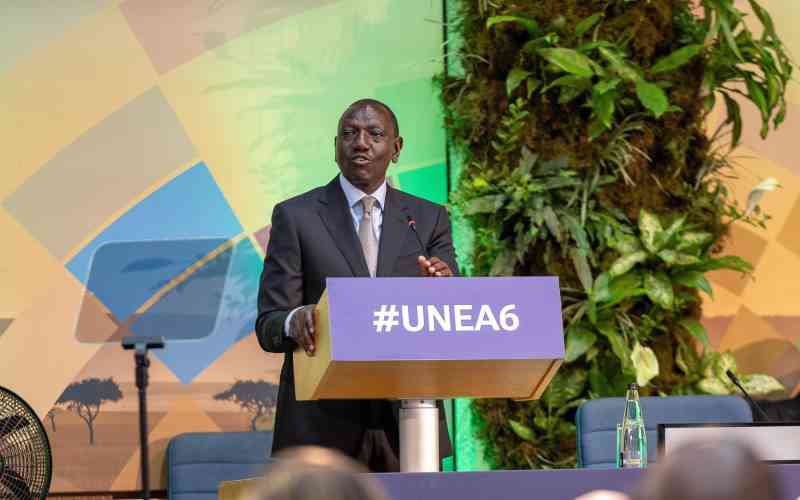By PETER ORENGO
An overhaul of the way the planet is managed is urgently needed if the world is to sustain the seven billion population.
This is the conclusion of studies conducted by United Nations Environment Programme (Unep) involving over 400 scientists and experts worldwide now meeting at Gigiri, Nairobi.
The Unep’s Foresight Process is an eight-month process to identify and rank the most pressing emerging issues in environment, which do not currently receive the attention they deserve, but have a huge impact on the planet and on human well-being.
While the science community is in the frontline of assessing emerging threats and finding innovative solutions to the environmental challenges, the report reveals that they need more support from international, political and delivery structures if real progress is to be made and a sustainable century realised.
"It is a snapshot of expert scientific opinion, underlining how even long-standing issues such as governance, food security and water scarcity are evolving and metamorphosing as accelerating environmental change presents fresh and fundamentally new challenges," Achim Steiner, UN Under-Secretary General and Unep Executive Director, said.
The final report will offer the analysis and the scientific foresight that will inform governments, the public and civil society how far the current development path is stretching the planet and fast forwarding ‘tipping points’.
"It hopefully will be also read, understood and digested by everyone interested in transforming sustainable development from theory and patchy success into implemented day to day practice," he said.
Unep’s Foresight Panel consists of 22 distinguished members from 16 developing and industrialised countries recognised because of their expertise in one or more environmental or related issues.
Emerging issues
The panel, whose findings were released on Monday at the opening of the 12th Special Session of the Unep Governing Council/Global Ministerial Environment Forum, selected a preliminary list of 21 emerging issues after a first round of debate on more than 90 issues.
These were put out for consultation and feedback from more than 400 leading scientists and researchers worldwide.
Based on their responses, the panel produced a ranked list of "21 Issues for the 21st Century", concluding that the number one issue facing the planet is aligning governance to the challenges of global sustainability.
The current system of international environmental governance, with its maze of interlocking multilateral agreements evolved during the 20th century, is believed by the vast majority to be unsuitable and ill-equipped to meet the risks and deliver the opportunities for the 21st century.
New methods
Stay informed. Subscribe to our newsletter
Some commentators believe that this system lacks the necessary representativeness, accountability and effectiveness for the transition to sustainability, and that a much higher level of participation and transparency is needed.
New models of governance are being tested, ranging from public-private community partnerships to alliances between environmentalists and other civil society groups. However, the effectiveness of novel governance arrangements is unclear and requires further scrutiny.
 The Standard Group Plc is a
multi-media organization with investments in media platforms spanning newspaper
print operations, television, radio broadcasting, digital and online services. The
Standard Group is recognized as a leading multi-media house in Kenya with a key
influence in matters of national and international interest.
The Standard Group Plc is a
multi-media organization with investments in media platforms spanning newspaper
print operations, television, radio broadcasting, digital and online services. The
Standard Group is recognized as a leading multi-media house in Kenya with a key
influence in matters of national and international interest.
 The Standard Group Plc is a
multi-media organization with investments in media platforms spanning newspaper
print operations, television, radio broadcasting, digital and online services. The
Standard Group is recognized as a leading multi-media house in Kenya with a key
influence in matters of national and international interest.
The Standard Group Plc is a
multi-media organization with investments in media platforms spanning newspaper
print operations, television, radio broadcasting, digital and online services. The
Standard Group is recognized as a leading multi-media house in Kenya with a key
influence in matters of national and international interest.







